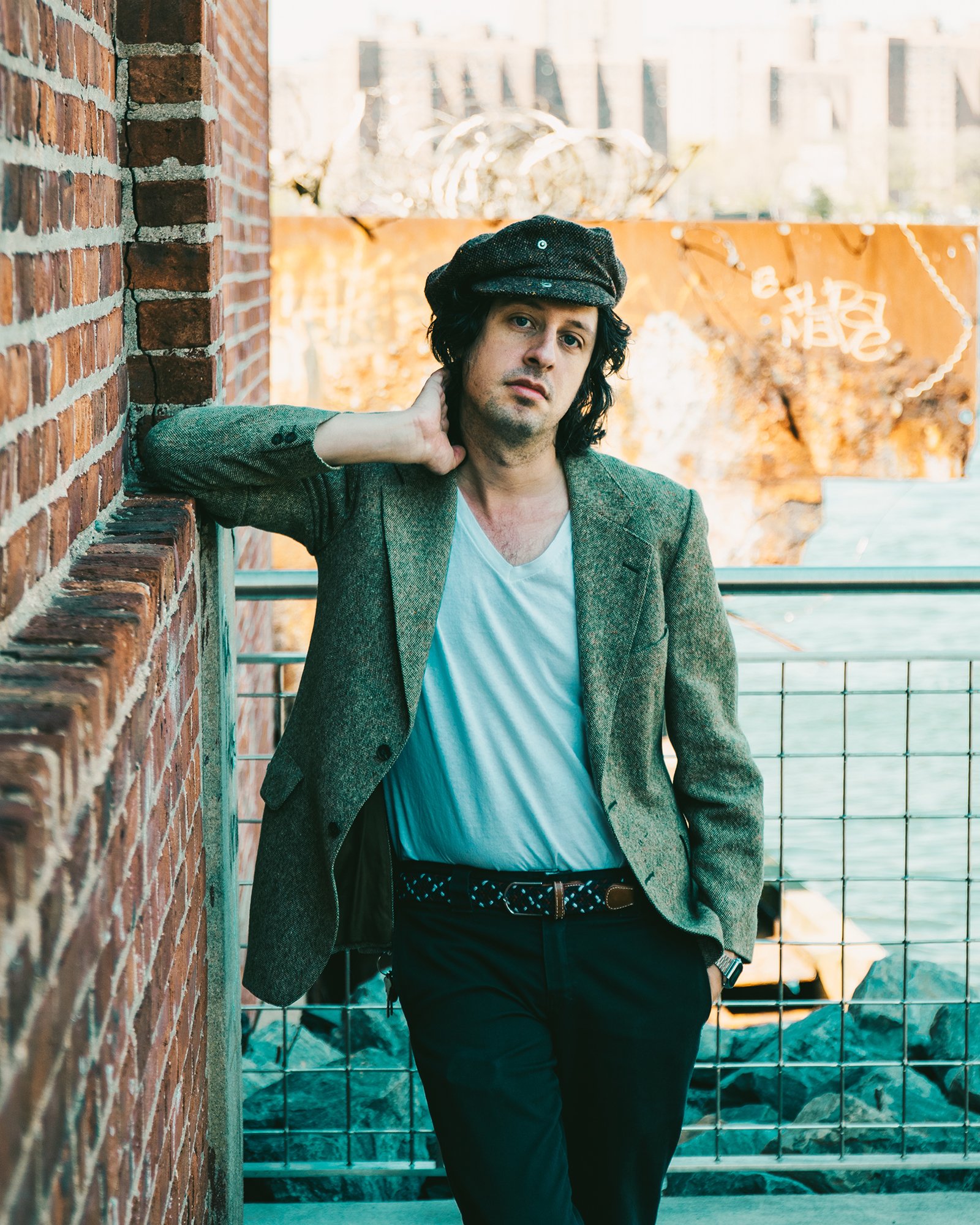
Adam Green’s latest exhibition at Dimin in New York packs a big punch. Green, who in addition to being a visual artist, is co-founder of the lo-fi, anti-folk duo the Moldy Peaches. The band, which consists of Green and Kimya Dawson, gained popularity in the early 2000s, further sparked by its inclusion in the soundtrack for the 2007 film Juno. Green’s new solo show arrives following several hiatuses he took to pursue solo projects inside and outside of the music industry.
“Transfiguration of the Comedian” consists of 10 paintings and traces Green’s artistic trajectory from multiple perspectives. Green has always explored multiple creative avenues throughout his career and this latest show is no exception. He has released 10 solo albums, the 2016 cult film Aladdin, a graphic novel entitled War and Paradise (2019), and currently has a screenplay in the works. While from the outside, these may seem like separate projects, they are all deeply interconnected and this larger polymath approach is encapsulated in this show.
Installation view of “Transfiguration of the Comedian” at Dimin. Photo courtesy of Dimin.
The oil paintings within this exhibition are centered around the Comedian, a figure that Green has been developing over the last few years. Green has come to think of the Comedian as a kind of deity that also serves as a critique of the world we live in today and an interior one he has created.
“The comedian is sort of a god of novelty that can’t create anything new. And I’ve just been struck in general with the ability of A.I. to instantly hybridize things. That’s one thing that [A.I. is] really good at, just mashing up things. When I approach my own art, I like to build it with hybrid materials in my own mind. If I can start with materials that have different meanings to me, then the whole artwork will be hyperlinked and there’ll be almost like a landscape,” Green said.
Adam Green, Comedian Mandala (2022). Photo courtesy of Dimin.
The paintings themselves, featuring the Comedian in myriad forms, contain multiple layers of meaning drawing on pop culture, with references to Disney’s iconic Mickey Mouse and video game characters. Spirituality is a theme that comes up often.
Despite emerging from the indie rock realm, Green has also been a part of the commercial art world for over 20 years, showing at galleries such as the Hole and Deitch Projects, among others, and even working for a time as an art handler. Robert Dimin, owner of Dimin, and Green first met at a show at the Hole in 2012—where Green’s work was shown and Dimin served as art handler—and stayed in contact.
Installation view of “Transfiguration of the Comedian” at Dimin. Photo courtesy of Dimin.
When Green’s most recent body of work arrived back from Greece, where they were shown at Allouche Benias, Dimin saw an opportunity to show the paintings. He noted the gallery is an artist-focused space, a mission captured in its programming and location in Tribeca, a neighborhood that has historically been an experimental and avant-garde hotbed. Green’s current exhibition is very much a reflection of the downtown scene’s past and present.
“We try to do interesting, exciting things and embrace a broader community. The rock community and the downtown scene is something that we do want to participate in as well as [in] the very elite art academic scene. I want to be a place for everything as much as I can,” Dimin said.
Adam Green, Comedian Deity (detail) (2022). Photo courtesy of Dimin.
For Green, there is a lot of crossover between his musical and artistic practice—the mediums fuels each other. Often, he can be found walking around the streets of New York like a modern day flâneur with his recorder and notepad ready. He likes to walk to “get a natural rhythm” and if an idea strikes for a song or a piece of art he will write it down. This analog approach—his own form of hybridization without A.I.—has been key to his art-making.
“I think my whole process is just pretty much that I walk around the city and I write in my notepad and think freely. Then I just go through my notes later and make them into my works. For the last 15 or so years, I’ve just pretty much done that,” Green said. “It’s sort of a museum of memory to walk around Manhattan.”
“Transfiguration of the Comedian“ is on view at Dimin, 406 Broadway Fl. 2, New York, through August 17.